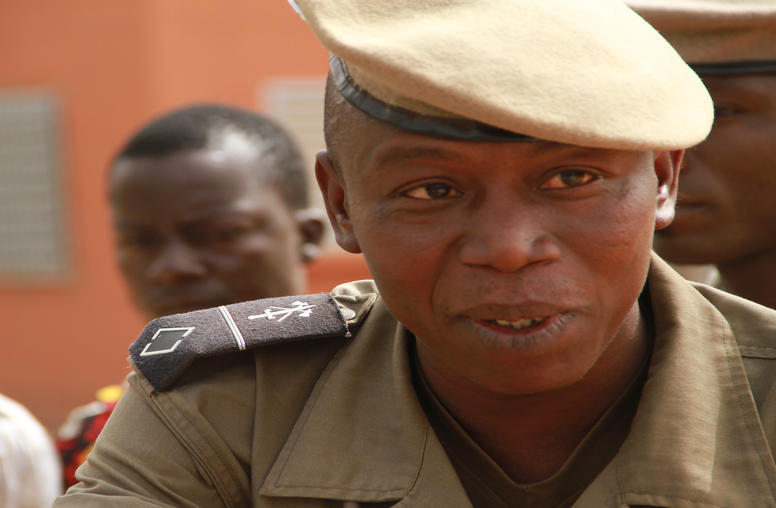 Nigeria
Nigeria
Nigeria’s challenges have intensified over the past decade, constraining governance capacity and deepening public distrust in institutions. As Africa’s most populous country, Nigeria’s stability is of strategic importance for the region and U.S. economic cooperation. Active in Nigeria since 2015, the U.S. Institute of Peace supports officials and partners in their efforts to prevent the spread of the violent Islamist insurgent group Boko Haram, strengthen state-level peacebuilding institutions to better connect citizens and decisionmakers, and connect business leaders with peace actors to bolster private sector engagement, while providing strategies for how the U.S. can advance regional peace and security.
Learn more in USIP’s fact sheet on The Current Situation in Nigeria.
Featured Research & Analysis

In Nigeria’s Plateau State, Communal Violence Requires a Locally Led Solution
Starting in late December 2023, vicious and indiscriminate violence broke out in the Mangu local government area in Plateau State, Nigeria among the area’s farming and pastoral communities. By the time the attacks stopped in mid-February 2024, reports indicated that 865 people, including 160 children, had been brutally killed.

Nigeria at a Crossroads: Navigating Protests Amid Elections
Nigerians marked their 64th independence day on October 1 with widespread protests fueled by growing public anger over soaring inflation, worsening insecurity, ineffective governance and rising fuel prices. This marks the second time in less than three months that citizens have taken to the streets. In August, during the “10 Days of Rage,” the appearance of Russian flags and calls for military intervention distracted from Nigeria’s entrenched governance and economic crises — issues that continue to drive insecurity and demand urgent government action. The latest protests coincide with local elections, heightening pressure on the government to demonstrate a genuine commitment to addressing citizens’ concerns in a tangible, meaningful way.

Stability in West Africa: Working With Nigeria’s State Governments
As coups and other setbacks have stymied military-led efforts to stem upheavals in West Africa and the Sahel, a potent new constituency of leaders has just gathered to plan nonviolent strategies to stabilize their own core area of the region: northern Nigeria. In West Africa’s demographic giant, economic crisis is exacerbating intercommunal conflicts, crime and other violence — and Nigeria’s federalism gives vital roles to its states in addressing roots of these problems. Ten recently elected state governors gathered in Washington last month with peacebuilding and development experts, business leaders and senior U.S. officials; they resolved to strengthen and coordinate state-level stabilization strategies — an initiative that international partners should support.
Current Projects

Generation Change Fellows Program
Generation Change works with young leaders across the globe to foster collaboration, build resilience and strengthen capacity as they transform local communities.

Justice and Security Dialogues
In countries of Africa, the Middle East and Asia, USIP has pioneered a method to bring state officials, community leaders and citizens together to work out the roots of their problems and cooperatively rebuild security.

Youth Advisory Council
Built upon the belief that youth bring significant and unique insight to peacebuilding, the U.S. Institute of Peace’s Youth Advisory Council (YAC) provides a mechanism through which USIP experts can benefit from youth perspectives and expertise. The YAC enables USIP staff to engage youth as partners, experts, and practioners while elevating youth voices and experience to the international level. The YAC contributes to USIP’s vision for an inclusive approach to peacebuilding. The Youth Advisory Council meets regularly to bring together youth thought leaders and peacebuilding experts committed to the Institute’s mission and activities.